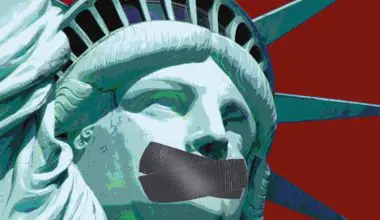A recent study undertaken by University of Illinois Chicago Professors Alexandra Filindra and Noah Kaplan is claimed to have “found that racial anti-Black prejudicial motives contribute to the opposition of gun control, and people who have a stronger sense of racial prejudice among the white population find the idea of having a firearm more appealing.”
Ironically, the study was evidently prompted by the Alexandria, Virginia shooting that gravely wounded Representative Steve Scalise and three other white people, along with a black police officer (whose courage under fire helped prevent a vastly larger tragedy). The shooter was a white, “progressive” supporter of “gun control” fanatic Senator Bernie Sanders (I-VT).
Never mind that, says Professor Filindra. What we are to take home from their “research” is that “racial prejudice is a significant predicator of opposition of gun control.” The study apparently makes no attempt to explain the existence of African- American individuals who are just as horrified by the prospect of being denied one’s best means of defending life and liberty as any white gun rights advocate.
As well, do not look behind the curtain to see the historical origins of “gun control” in the United States. Certainly cover your ears if anyone has the temerity to quote UCLA Constitutional law Professor Adam Winkler, no gun rights advocate himself, but who nevertheless describes the Ku Klux Klan as America’s first gun control group.
This is because during the post- Civil War Reconstruction period, southern racists had to find creative new ways to prevent newly freed slaves from arming themselves, and thus threatening white hegemony. A law that simply decreed “no guns for blacks” would clearly have violated the Second Amendment’s protection of the people’s right to bear arms as it was understood at that time. (The now-discredited “collective right” interpretation of the Second Amendment is not nearly as old as its supporters would have us believe.)
So instead, more insidious laws had to be found. Laws such as Tennessee’s “Army and Navy Law” of 1879, which limited legal ownership of handguns to only the “Army or Navy” models produced by Colt, which were well out of the very limited economic reach of most former slaves. Such laws lasted well beyond the Reconstruction period, though.
New York’s Sullivan Act was passed in 1911, with the intent of greatly restricting access to firearms for Irish and Italian immigrants. Even “Saturday Night Special” bans, such as the one in the federal Gun Control Act of 1968, are like the Reconstruction-era “Army and Navy” law, in that they ban many of the handguns African-Americans could afford.
Efforts to ban gun ownership in public housing, or carrying firearms on public transportation, constitute yet another mandated “wealth test” for gun ownership and use, and thus disproportionately affect racial minorities. That’s not an unintended consequence of such legislation— it’s precisely what the laws’ supporters wanted.
Look at this through the lens of our experience with today’s efforts to stop voter ID laws. These laws, our “progressive” brethren tell us, are “racist” because the nominal fees associated with obtaining official photo ID pose a hardship to the poor (who, again, are disproportionately comprised of people of color). What? Not a word about the fees associated with “universal background check” laws regulating the purchase of firearms—not to mention the ID required?
Actually, “progressives” now tell us that yet another way racial minorities are disenfranchised in the U.S. is by banning voting for felons, since felony records are more prevalent among racial minorities than in the general population. The aggressively “progressive” Daily Kos, for example, demands that even felons currently serving their sentences be permitted to vote:
“People in prison are still subject to the law and still have civil and human rights that must be protected. Therefore they still deserve a say in who represents their interests. No matter what crimes they’ve committed, incarcerated Americans are still Americans.”
An amusing exercise is to imagine what supporters of this effort would think of ending the lifelong gun ownership ban for the vast majority of felons. Granted, it would clearly be problematic to permit currently incarcerated felons to possess guns. But we would presumably be asked to believe that a felon’s right to vote is more important than his ever regaining the right to the most effective means of defending his home, his life, and his family.
Votes kill, and in numbers far greater than armed citizens do. At the risk of triggering references to Godwin’s Law, Hitler’s rise to power could not have happened without the Nazi Party winning a majority in the Reichstag. Could the carnage have been nearly as great if Hitler’s supporters had only had access to guns and not the voting booth?



